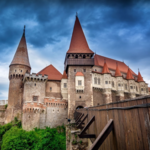Roxana & Daniel

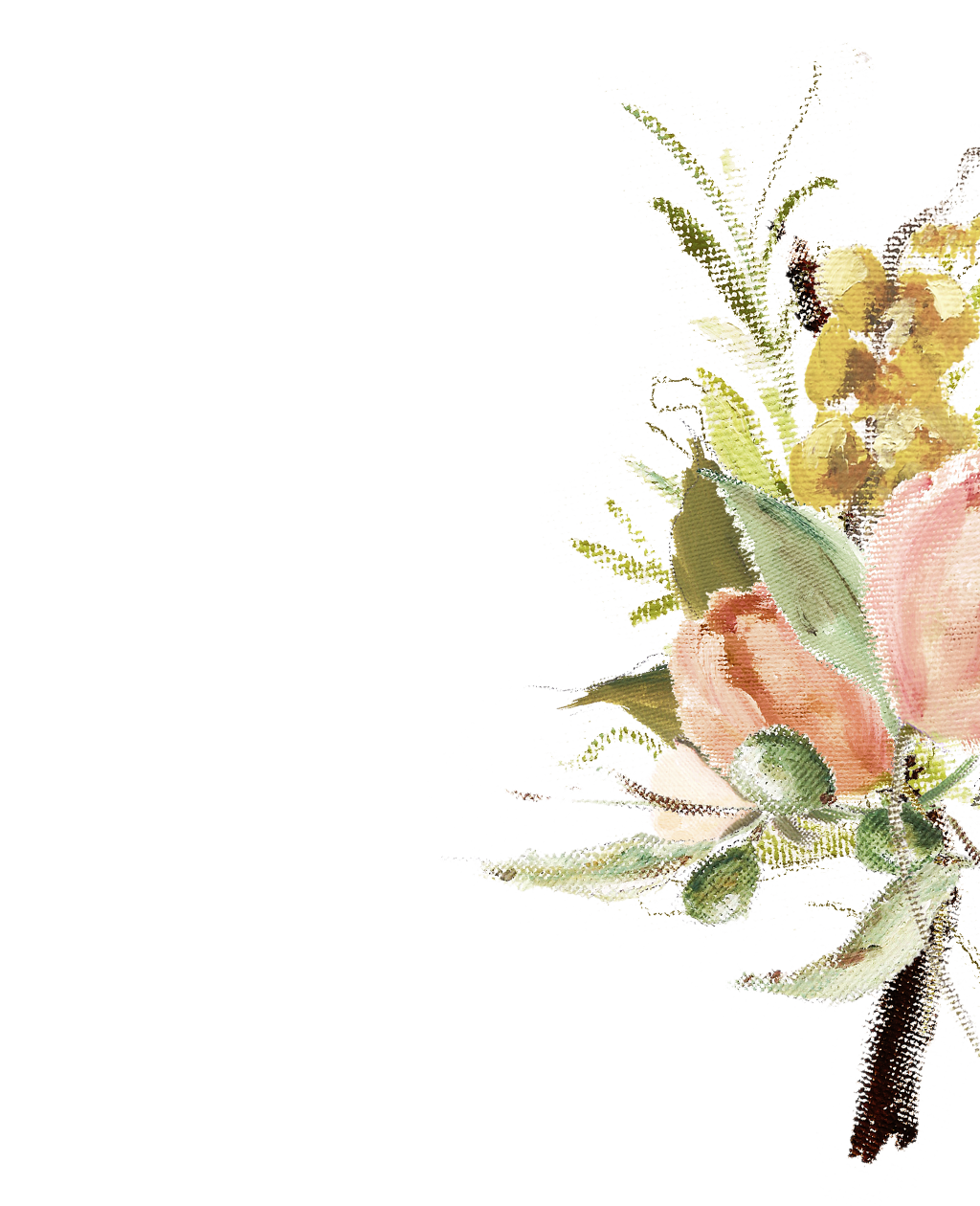
Things To Do

Astra National Museum Complex
The museum functions since 1963 under the name of the Museum of Folkloric Technique and stretches over 96 hectares and an exhibition circuit of 10 kilometers in length. The museum hosts original monuments representative for the values of the Romanian village. Dwellings from various parts of the country, interior decorations preserved in the original form, peasant industrial installations, traditional means of transportation etc are displayed here.
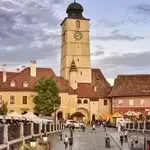
The Council Tower
It was built in the 12th century, but was also rebuilt multiple times, with its architecture getting changed.In the course of history, the tower played different roles, being used, among others, as a wheat storage or as an observation point in case of fire. Nowadays, it is used for exhibitions. The Council Tower is considered the most iconic building of Sibiu, which was the European Capital of Culture in 2007. Being the city's symbol, it is often found on Sibiu souvenirs or any kind of advertisement relating to the city.
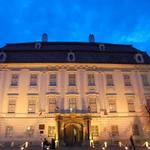
Brukenthal National Museum
The Brukenthal National Museum is a museum in Sibiu, Transylvania, Romania, established in the late 18th century by Samuel von Brukenthal (1721-1803) in his city palace. Baron Brukenthal, governor of the Grand Principality of Transylvania has established his first collections around 1790. The collections were officially opened to the public in 1817, making the museum the oldest institution of its kind on the territory of modern-day Romania. Today, in its extended form, it is a complex comprising six museums, which, without being separate administrative entities, are situated in different locations around the city and have their own distinct cultural programmes.
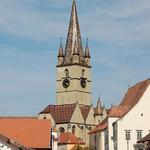
Lutheran Cathedral of Saint Mary
The Lutheran Cathedral of Saint Mary is the most famous Gothic-style church in Sibiu, Transylvania, Romania. Its massive 73.34 m high steeple is a landmark of the city. The four turrets situated on top of the steeple were a sign to let foreigners know that the town had the right to sentence to death. It belongs to the Lutheran, German-speaking Evangelical Church of Augustan Confession in Romania.
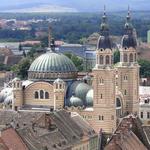
Holy Trinity Cathedral
The Holy Trinity Cathedral, Sibiu is the seat of the Romanian Orthodox Archbishop of Sibiu and Metropolitan of Transylvania. It was built in the style of a Byzantine basilica, inspired by Hagia Sophia,with the main spires influenced by Transylvanian church architecture and Baroque elements.
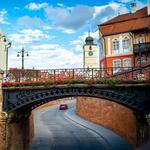
The Bridge of Lies
Considered to be a forged iron gem, The Bridge of Lies is one of the most important symbols of the city. Rebuilt in 1859 by Friedrich Hütte in the former location of a wooden bridge, The Bridge of Lies is the first forged iron bridge in Romania. Due to the fact that it was the first bridge not built on pillars, it was called “the lying bridge”. In German the word “lying" (lugenmarchen) was homonymous to the word “lie" and thus the locals began calling it the Bridge of Lies which is why the legends around its name appeared. The legend says that the bridge will collapse if someone will sit on it and tell a lie. In the local oral tradition circulates various legends about this bridge, legends about the lovers lies or those of the merchants that sold in the area.
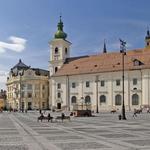
The Large Square
This is the historic center of Sibiu, first mentioned in documents in 1411 as a cereal market, the square existing since 1366 when the third fortification belt of the city was finalized. Staring with the 16th century, the large square became the center of the old city. For hundreds of years the square was named Der Grosse Ring or Grosser Platz, between the two world wars it was called King Ferdinand Square, the communists named it the Republic Square and starting with 1990 it returned to its original name. "The eyes of the city", as the roof windows are known, must also be mentioned here because they are most visible from this location. The wind flags were unmistakably present on every roof house and they indicated either the year the house was built or the emblem of the guild. At the present, they only exist on the Council Tower and on the building across it.
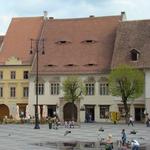
Haller House tower
The Haller House, built in a Renaissance style, preserves many elements from the original building dating from the 15th – 16th century such as the portal with the coat of arms, the arched entrance and the decorations. In time, the house belonged to several local personalities: Around 1475 the house was in the property of Hyeronimus Schneider, then its owner was Michael Gereb, around 1490 it belonged to Johannes Agatha, Szervatius Holzschuch, and since 1524 its owner was Michael Altemberger. In 1537 Michael Altemberger sells the house to Petrus Haller who kept it in the family for 354 years. Petrus Haller transformed the prior gothic building, rendering it its nowadays Renaissance aspect.
